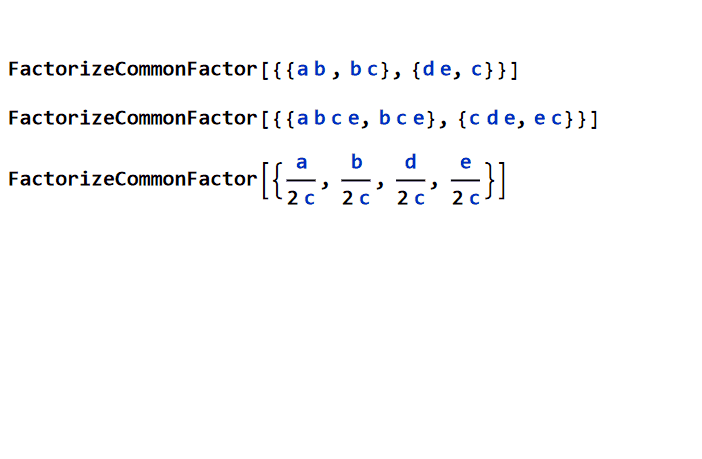I can't believe this hasn't been asked before but I can't find anything.
Is there a way to convince Simplify or FullSimplify to extract common factors from matrices as it does from sums?
Exhibit A:
{a/(2 c), b/(2 c), d/(2 c), e/(2 c)} // FullSimplify // FullSimplifygives
{a/(2 c), b/(2 c), d/(2 c), e/(2 c)}In reality, I have a 2x2 matrix, but the result is effectively the same. A solution to my problem should ideally not depend on the dimensions/layout of the (potentially nested) list.
Exhibit B:
a/(2 c) + b/(2 c) + d/(2 c) + e/(2 c) // FullSimplifygives
(a + b + d + e)/(2 c)
I did see this related question, but I'm just asking about rearranging, I don't actually need access to the polynomial GDC in a separate variable or anything, so I was wondering if this was possible with Simplify or FullSimplify somehow.




{a,b,c} xis not a "stable form", it would immediately evaluate to{a x, b x, c x}. The question is interesting, I'm just mentioning that it's not possible to keep the expression in this form. You'd have to store{a,b,c}andxseparately. $\endgroup$x+x, which evaluates immediately to2x, orSin[Pi]which evaluates to0. $\endgroup$PolynomialGDC. Feel free to close as duplicate. $\endgroup$Hold[{a, b} x]orHoldForm[{a,b} x], but held expressions aren't very suitable for algebraic manipulation.HoldFormis useful though for just displaying the expression in certain form that is easier for us humans to parse. $\endgroup$